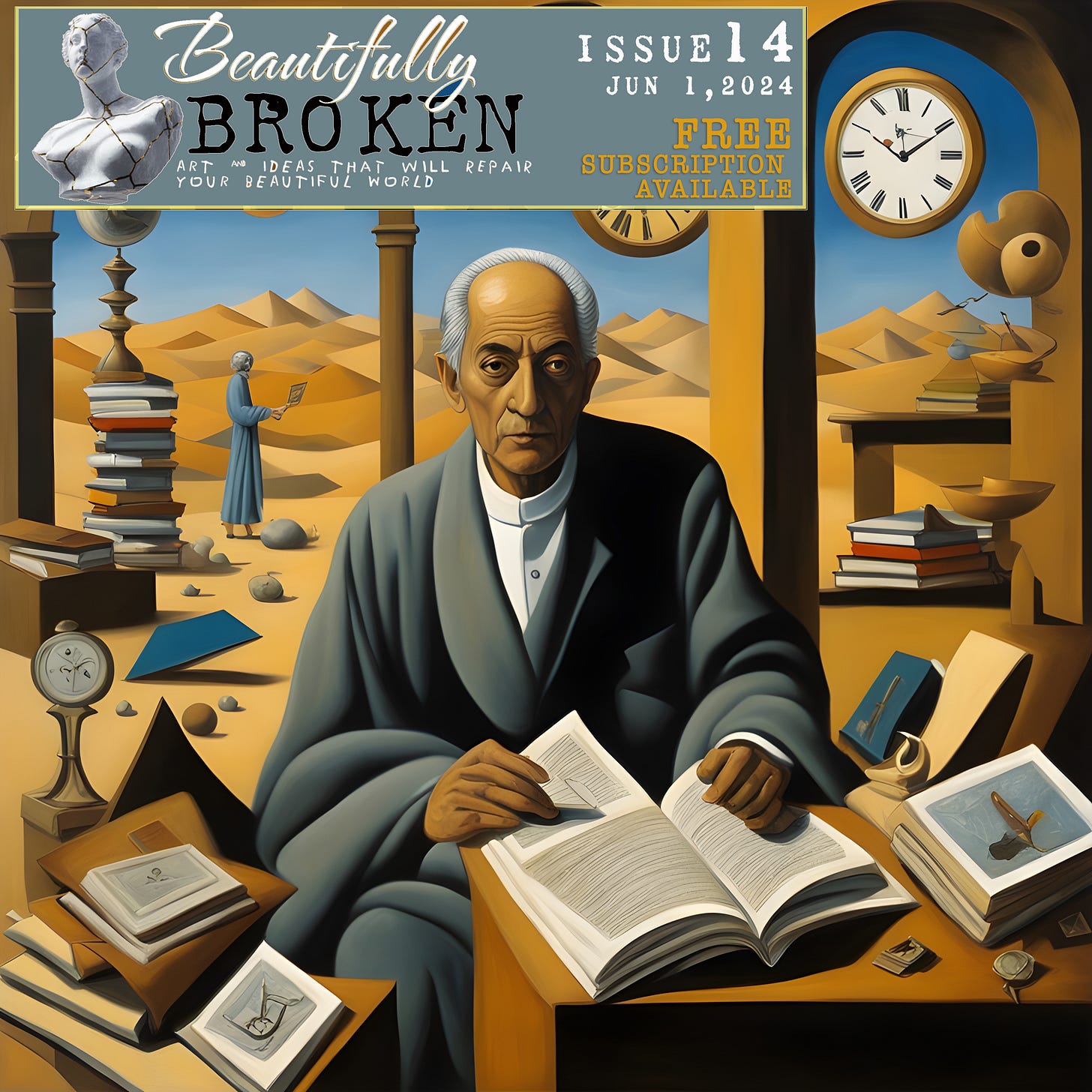Beautifully Broken Issue #14: Timing, Fear & Peace
IDEAS, ART & WISDOM TO REPAIR YOUR BEAUTIFUL WORLD
Happy Saturday! Welcome to the new, compact format of Beautifully Broken.
Because we’re in a busy, confusing world with a sea of content competing for our eyeballs, we've switched from a more traditional magazine format and offer an easy to read, condensed version of the ideas at the heart of the publication. Each Saturday I’ll deliver this easy-to-read…
Keep reading with a 7-day free trial
Subscribe to Beautifully Broken to keep reading this post and get 7 days of free access to the full post archives.




